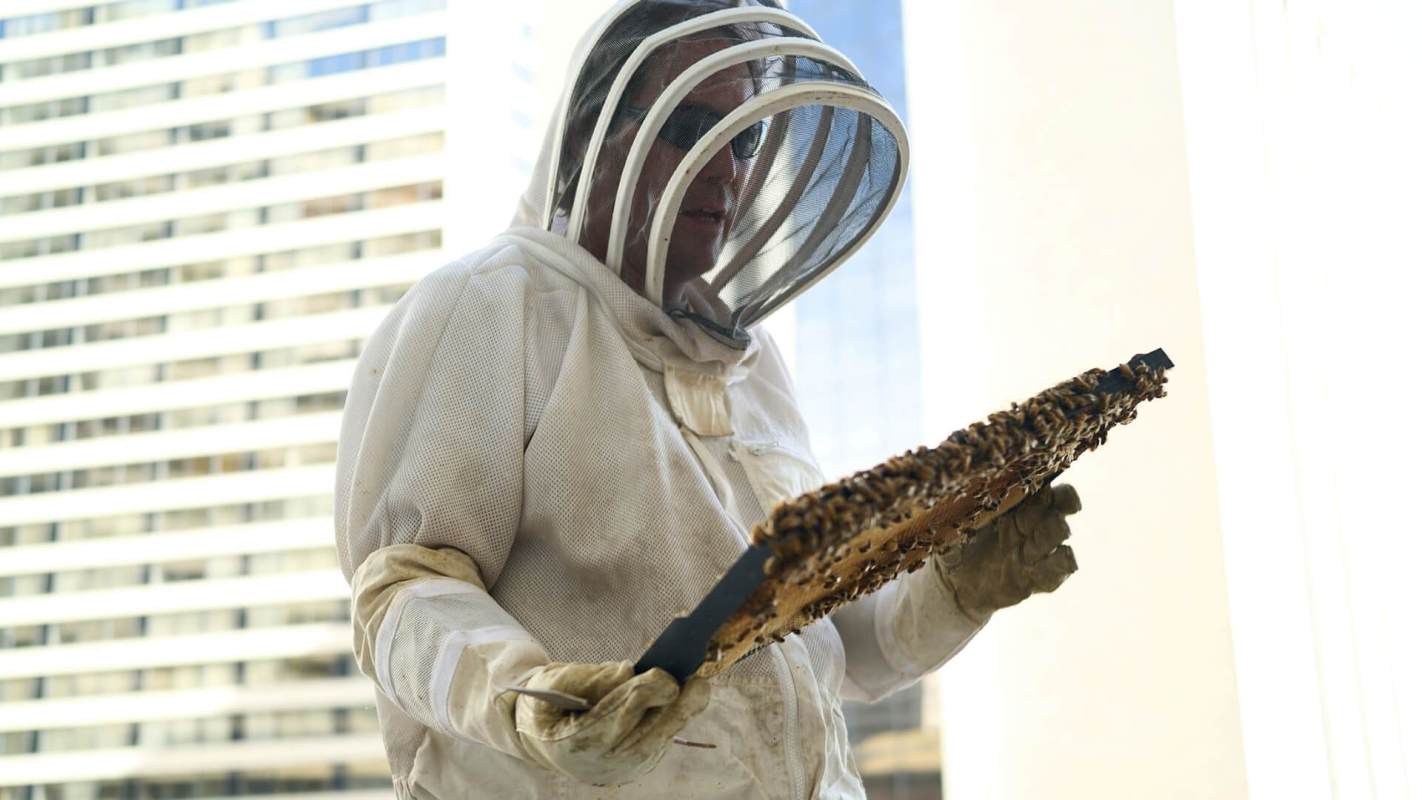One Utah hotel has a rooftop attraction that's generating an insane amount of buzz. The Hilton Salt Lake City Center has installed beehives on its roof, housing up to 40,000 bees.
These busy hotel workers create copious amounts of honey for the hotel kitchen and its guests — at least 15 gallons this past year. The honey is used in many of the kitchen's signature offerings, including honey-cinnamon ice cream.
But unique ice cream flavors aren't the main reason why this Salt Lake City hotel is tending to these bees. As part of Hilton's Travel With Purpose plan, adding these pollinators to its hotel can positively impact the local ecosystem in a big way.
Bees do a lot more than make honey. As pollinators, they help out farmers, adding roughly $15 billion in value to American crops, according to the FDA. And bees are so important to food production that about one-third of all food can be linked back to their work.
The overheating of our planet, in addition to humans using too many pesticides, has seriously hurt bee populations, threatening our food supply. These threats make human-managed beehives, like those found in this Salt Lake City hotel, even more important.
To make sure that the bees are thriving in their new rooftop home, Hilton has partnered with Bees Brothers, a Utah-based honey business, as well as an urban gardener employed with Grow Brighter Gardens.
The hotel's manager Garrett Parker sees the hives as an important part of Hilton's sustainability efforts.
"We could base our sustainability measures on energy efficiency alone, but we wanted to do something more unique," he said in a press release. "That's what inspired us to implement the beehives, which also represent our local community since Utah is the beehive state."

How you can help bees
Like Hilton, you can take action to protect these amazing pollinators. The first step you can take is to include plants in your garden that bees will love. Bees love flowers, herbs, fruits, and vegetables like sunflowers, basil, strawberries, and cucumbers. But like humans, bees want options. So it's important to have diversity in your garden plants so that bees can explore a variety of plants.
Next, reducing pesticide use is critical to helping these little guys do their jobs. Synthetic fertilizers can be harmful to bees.
Finally, powering your home with cheap, clean energy, like solar power, can help fight the overheating of our planet, a major threat to bees.
And if you cannot afford to install solar panels on your home, community solar projects could be available for you to access clean energy more easily, all while cutting your monthly electric bill.

Follow The Cool Down on Instagram and TikTok.








